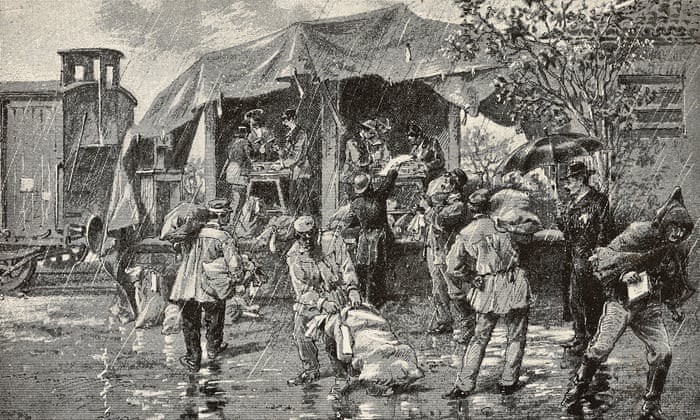The Cholera pandemic during the early 1830s hit France hard. It wiped out nearly 3% of Parisian, and hospitals were flooded with patients and doctors who could not understand the disease. At the end of the plague, France, along with Britain, subscribed to the industrial revolution. Anyone who has read “Les Mesérable” knows the pandemic also contributed to a political revolution.
The city poor who were hit hardest by the pandemic exploded against the rich who fled to their country homes to avoid contamination. France saw political instability afterward.
So how will our economy boost after the pandemic?
With countries lifting the stay-at-home orders and promoting vaccinations, the world economy is now in a recovery mode. However, the situation is still unclear for many economists and policymakers. So let us take a glimpse at our history and what it tells us about the post-pandemic boom?
History suggests that after a series of disruptions like world wars and pandemics, GDPs bounce back. It offers three lessons- People like to spend, crises encourage business to employ new innovations and political instabilities.
People like to spend
History suggests that people accumulate savings during the first phase of economic recovery as spending opportunities vanish. Even in the first half of the 1870s, British household savings rates doubled during the smallpox era. Japan’s savings rate doubled during the first world war.
History also offers us a guide to what people do once life gets back to normal. Spending rises along with employment, but not in excess. History also shows when the Spanish flu was defeated in 1920, America felt like “a sick and tired” nation. According to Goldman Sachs, an American consumer spends only 20% of their saving during 1946–49 (after world war II). And in 1949, the economy went into recession. Therefore, there is still little evidence of pandemic inducing surges in inflation.
Employing new innovations
Taking about the supply side of the economy- meaning how and where goods and services are produced. Some people may try new innovations to earn money. Historians believe that the Black Death made Europeans more adventurous. Piling on ships and sailing towards new lands- something less risky than people dying at home. According to the National Bureau of Economic Research published in 1948, the number of startups increased during 1919.
The economists have made another link between pandemic and use of labour and technology. A research paper by IMF looks at recent outbreaks such as Ebola and SARS. The findings suggest the pandemic speeds up the employment of robots, especially when health is a significant issue — for example, the rise of automation in America during the 1920s. Some have even made links between the Black Death and Johannes Gutenberg Press.
A paper published by the Federal Reserve Bank of San Francisco finds real wages increase after the pandemic. Sometimes, this is through the macabre mechanism.
Political Instability
When people have suffered in large, attitudes could shift towards the working class. Such incidences have led to political disorder. This is because pandemics can sometimes force us to look at pre-existing inequalities and political instability. Ebola in 2013–16 increase violence in West Africa by 40%. “It is reasonable to assume that, as the pandemic fades, unrest may re-emerge in locations wherever it previously existed,” researchers write in another IMF paper. Social unrest seems to peak two years after the pandemic ends. Therefore, appreciate the boom while it endures. Before long, there may be a twist in the story.
https://medium.com/illumination/lessons-from-history-about-post-pandemic-booms-df7e61d2cf8c
 would enable you to enjoy an array of other services such as Member Rankings, User Groups, Own Posts & Profile, Exclusive Research, Live Chat Box etc..
would enable you to enjoy an array of other services such as Member Rankings, User Groups, Own Posts & Profile, Exclusive Research, Live Chat Box etc.. 
 Home
Home



















